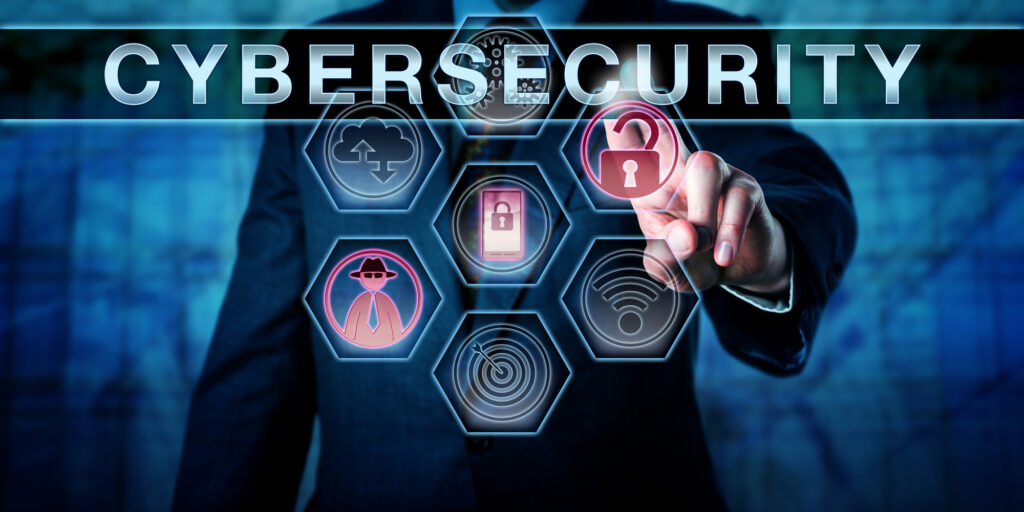Are you considering a career in cybersecurity but are unsure of what it takes?
You might have a strong background in computers and a curiosity for emerging technologies. Have you considered developing your cybersecurity skills?
You might think most of the skills you’d need would be technical, but it takes more than a degree or certificate to progress in cybersecurity. Research by McAfee found that 82% of respondents reported a shortage of cybersecurity skills.
According to bls.gov, if you want to enter a high-demand IT field, you should consider cybersecurity. We’re going to explain the hard and soft skills that it will take to make it. Read on!
Technical Skills
The skills needed for cybersecurity may start with a degree or certificate. Most employers will want you to demonstrate that you know the fundamentals of information technology.
It’s important to realize that your learning doesn’t end when you graduate or complete your cybersecurity course. As with other technology fields, the IT industry is dynamic and ever-changing. This is especially true with cybersecurity.
You’ll need to learn on-the-job, but you’ll also have to dedicate time to self-learning outside work. You’ll need to stay up-to-date with threats and developments in operating systems. Working knowledge of Windows, Linux, Apple, and Android will also be necessary.
Intermediate and advanced job postings might intimidate you with many listed technical skills. Remember that as in an entry-level role, you’ll be learning and developing many of these skills on-the-job.
Knowledge of ethical hacking will serve you when you’re searching for vulnerabilities. A computer forensics background might be useful, though it’s usually not required. This is because cybersecurity is a similar field.
You’ll need to be very familiar with networking and firewalls. You’ll also need to understand the common programming and scripting languages, like Java, C/C++, and Python.
Familiarity with privacy and security regulations will help and will be vital on the job. Because you will be tasked with securing data privacy, any breach could lead to significant fines for the company that employs you.
Cybersecurity audits are used to validate security policies. This ensures compliance with regulations that are in effect.
Analytical Skills
Jobs in cybersecurity involve security information and event management (SIEM) tools. These software products/services are used for real-time analysis. They monitor the network, applications, and hardware for security alerts.
Not only will you need to be adept at protecting data from being stolen, but you will also need to know how to analyze data.
Your cybersecurity skills will enable you to interpret these analytics and respond to threats. You will need to have or hone your ability to pay attention to detail, also known as critical thinking.
At times you may need to put on your “Black Hat” and think in the same way as a hacker. This is how you uncover vulnerabilities in a cyber defense strategy.
Testing and attempting to break software and applications requires high-level problem-solving skills. You will need to develop your logical thinking and reasoning abilities. Troubleshooting will also be a significant aspect of the job.
A cybersecurity specialist will need the versatility to assess and react to a variety of security threats. Some common attacks you will likely have to deal with are phishing, ransomware, and malware.
Advanced persistent threats and distributed denial of service attacks are also common. Some of these attacks might completely bypass security protections. This means that you must be able to create solutions for problems that you’ve never encountered before.
You’ll need to learn and adapt to change extremely fast. The pace of software development and cyber threats will require you to have sound research skills.
Any cybersecurity strategy is only as good as its weakest link. You must communicate security measures to employees to make sure that they stay vigilant against threats.
Communication Skills
We’ve covered the necessary skills for cybersecurity jobs that are related directly to cyber defense. You might not have considered others, such as the soft skills that are often required.
Some might be attracted to cybersecurity with the misconception that they won’t have to interact much with others.
While this isn’t true, most of the time, you’ll be directly imparting knowledge to those who need it. This will involve the ability to boil technical language down into clear verbal communication. The ability to communicate threats to an entire organization is essential.
Social engineering is a particularly problematic area. Employees might be manipulated into opening up a security hole to a criminal posing as an employee or client.
If the organization you work for requires you to deal with customers or clients, you’ll need to sharpen your customer service skills. Solid presentation skills will be valuable, whether your audience is a client or manager. Practice active listening and articulate speaking; these are skills that are appreciated in most careers.
Excellent writing skills will be an asset to document security information clearly for all readers.
Some roles might involve working independently. You might be coding solutions to automate security tasks, for example. A more senior role might involve you working collaboratively or taking the lead on a task.
Good project management skills will be called for so that you can organize a solution smoothly from start to finish. This might involve motivating others in a team to stay focused and effective on a project.
Learn Cybersecurity Skills Today
We’ve shown that there’s a need for cybersecurity skills not being met and that the job also entails human skills that you should develop. Don’t let a lack of degree or certification eliminate you from the applicant pool. To view, the current needs for cybersecurity professionals, visit bls.gov
If you’re looking to start a cybersecurity career, we can help you take the first step. We are a private institution providing associates degrees and certificate programs in Cybersecurity. We would love to show you the options available to you.
Contact us today to get started.


